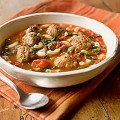Did you know that the way you taste food can be affected by a number of different things? Many factors can influence how we perceive flavor, from our environment to our mood. In this blog post, we will discuss six of the most common things that can affect the way we taste food.
1) Our Perception Of Food
How we perceive food can be affected by several different things, ranging from our personal preferences to outside influences. For example, if we have had a bad experience with a certain food in the past, we may be less likely to enjoy it again in the future. Similarly, if we see someone else enjoying a particular food, we may be more likely to want to try it ourselves.
2) Your Environment
The environment in which we eat can also have an impact on the way we taste food. For instance, if we are eating in a loud or chaotic setting, it can be difficult to focus on the flavors of our food. Similarly, if we are eating in a more relaxed setting, such as at home with family or friends, we may be more likely to savor our meal and pay attention to the different flavors.
3) Different Types Of Food
Eating different types of food in one sitting can affect how we taste each food. For example, if we eat a lot of salty food, we may find that sweet foods taste sweeter than usual. Similarly, if we eat a lot of spicy food, we may find that the next food we eat tastes milder in comparison. This is often why some restaurants offer palate cleansers, such as a sorbet or salad, in between courses.
4) Smoking And Alcohol
Smoking and drinking alcohol can also affect the way we taste food. For instance, smokers may find that their food tastes more bland than usual, as cigarettes can dull our sense of taste. If you’re a foodie, it might make sense to switch to a vape like the smok novo. Similarly, drinkers may find that their food tastes more intense, as alcohol can heighten our senses.
5) Stress And Fatigue
Stress and fatigue can also affect the way we taste food. For example, when we are stressed, our bodies release a hormone called cortisol, making sweet foods taste less sweet and savory foods taste saltier. Similarly, when we are tired, our sense of smell is diminished, making food taste less flavorful.
6) Medications
Finally, medications can also affect the way we taste food. For instance, some antibiotics can cause a metallic taste, while others may make food taste sweeter than usual. If you are concerned that your medication is affecting your sense of taste, be sure to speak with your doctor.
As you can see, there are many different things that can affect the way we taste food. By understanding these factors, we can be more mindful of our own individual preferences and better appreciate the different flavors of our foods. Bon appetit!
Related Posts
- Food & Cooking
Cooking-BasicsBaking-BasicsHow-To'sFood & Wine
- Photo Gallery
Dessert Gallery Main Course Gallery Soup & Appetizer Gallery Salads & Sides Gallery Drinks &…
- Christmas Recipes
CHRISTMAS CRAFTSEasy Candle Crafts for the Holiday SeasonHoliday Centerpieces Under $10COOKIES & DESSERTSSnowflake Sugar CookiesChristmas…



















They might also assist absorb stomach acid, decreasing heartburn. This will help digestion and the removing of
acid from your stomach and esophagus more quickly.
Protein content might assist relieve heartburn. The prescription may cost lower than the over-the-counter.
The identification may be of any type of burn, ache or a smoldering.
By understanding the facets concerned that may have an effect on the LES, it is possible
to go a lengthy method toward heartburn alleviation and prevention. Probably the most typical digestive system situation people encounter is heartburn and quite a few people are likely to go through potential
occurrences of this problem on account of lifestyle facets
and dietary habits. At the top of some seconds,
your lungs are probably burning and your chest feels tight (unless you’re a star athlete).
Most people describe heartburn as a painful burning sensation within the chest, typically together
with a bitter taste within the mouth and throat. One research checked out what occurred
when individuals with GERD ate high fat foods.